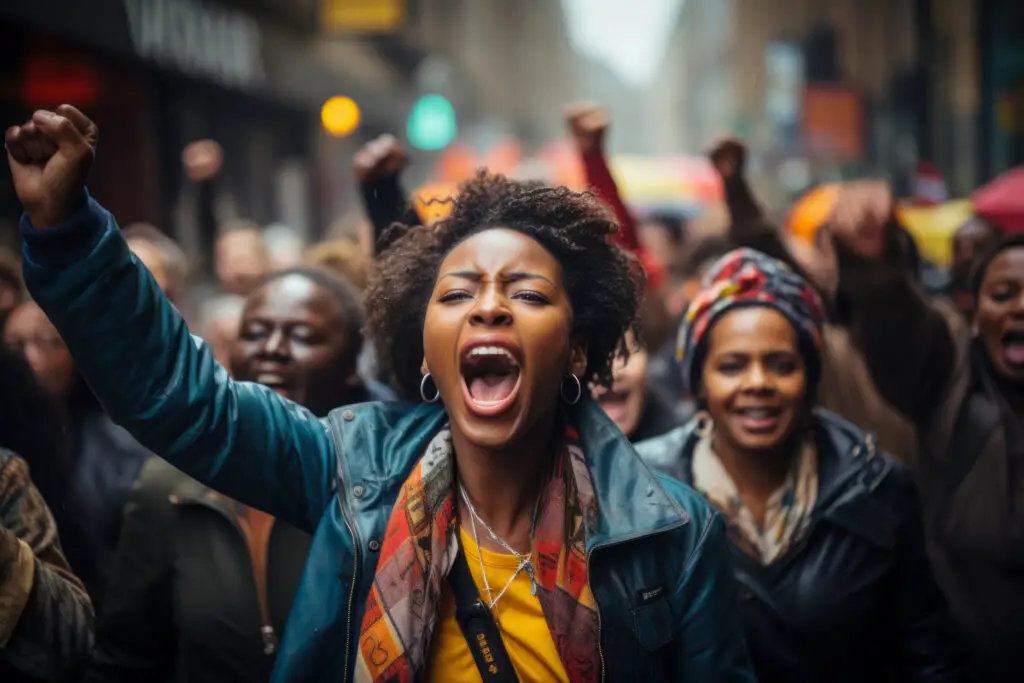Outline
Lifestyle varies from person to person
The Lifestyle of an Activist: Is It a Healthy One?
- The Demands of Activism
- Mental and Emotional Health Challenges
- Social and Personal Life
- Physical Health Considerations
- Positive Aspects of an Activist’s Lifestyle
- Strategies for a Healthier Activist Lifestyle
End Note
Article
Lifestyle varies from person to person
Hello fellows! Here is my new article, and in it, I am going to explain a lifestyle that many people in this world have opted and you must have witnessed it around yourself.
People choose different lifestyles based on a variety of factors including personal preferences, cultural influences, socioeconomic conditions, and individual values. Some may desire a career-orientated life in a fast-paced city with opportunities to professionally advance, network, or experience culture. In this density, individuals often feel alive and find meaning in the high productivity and constant stimuli associated with their work and pace of life. Others might want a more relaxed, slower pace of life in the country or suburban areas. They seek tranquility, close-knit communities, and a relationship with nature; personal relationships and balance come first before hustle and bustle. So, lifestyle is chosen by the people according to their own mindset, and in this article, I am going to describe a few aspects of one such lifestyle which many people have opted for, and which they may have carried on throughout their lives.
The Lifestyle of an Activist: Is It a Healthy One?
Activism is a really very important motivator of social change; it is powered by individuals who passionately advocate on causes such as environmental protection, human rights, political reform, and social justice. They play the purpose of bringing awareness, influencing public opinion, and most importantly, legislative changes. But with how demanding life as an activist can get, this surely brings forth an important question: how healthy a lifestyle does an activist lead? The paper discusses the various aspects of the life that an activist lead, whether healthy or otherwise.

- The Demands of Activism
This often means heavy investment in terms of time and energy input and may even be emotionally overwhelming; activists are usually organizing events, joining protests, attending meetings, and doing research. These often require long work hours and have much in common with stress. Tangible results at times may pressurize them further, along with the constant exposure to issues in society, which is mentally and emotionally demanding.
One should not evade the physical difficulties of the activism. Since most of the activists engage in marches, rallies, and sit-ins, the physical work can be very exhausting. There is a need to keep mobile and present at various places that seriously interferes with regular sleep patterns and causes physical exhaustion.
- Mental and Emotional Health Challenges
It is mentally and emotionally heavy for activists. Continuous confrontation with injustice, inequality, and suffering may cause emotional burnout and compassion fatigue. The underlying sense of personal connection to causes being pursued makes it hard to disengage, take some time off, and step back. This relentless drive for making a difference is sure to make chronic stress, anxiety, and depression occur.
Activists also are opposed to criticisms and even threats from people who disagree with what they say or do. This is such an adversarial environment that will foster isolation, frustration, and a feeling of helplessness. Adding more pressure is the need to maintain a public persona and be a constant voice for their cause, further exaggerating such mental health challenges.
- Social and Personal Life
The commitment necessary to be an activist is sometimes overpowering and, as such, stressful to personal relationships and social life. Quite often, it is difficult for activists to balance the demands of their work against family, friendship, and recreational responsibilities. The intensity of the work may gradually set in and eventually lead to the neglect of personal relationships, further resulting in loneliness and isolation from society.
Activism also rewards a sense of community and belonging. A great number of activists find a sense of friendship and support from most of their activist networks and organizations. These may be emotionally nurturing, a shared purpose, and feelings of solidarity which are good for psychological well-being.
- Physical Health Considerations
Another important aspect, of course, is physical health: the irregular hours, lack of sleep, and high level of stress weaken the immune system and open up more so to various sicknesses. Moreover, protests and rallies can be very exhaustive and injurious.
Apart from that, activism also tends to be intensely connected with a lot of walking and other forms of outings in the form of marches; many times, this helps some activists in being physically fit and healthy. Of course, the trick lies in balancing the amount of physical stress one endures and indulges in with that amount that is applied to rest and stress-releasing exercises.

- Positive Aspects of an Activist’s Lifestyle
Regardless of the complications, there are a number of positive features to an activist’s lifestyle. The sense of purpose and fulfillment one could get from trying to promote valuable changes is bound to improve significantly the psychological and emotional well-being of a person. Through activism, individuals are able to bring their actions into correspondence with their values, which enhances integrity and authenticity.
Beyond that, the skills produced through activism-public speaking, organizing, critical thinking, and negotiation-can also have the potential to bring about personal growth and empowerment. Through it all-the issues that arise in work-activists can often become quite resilient, adaptable, and resourceful. This is often revealed in overcoming the challenges of their particular work.
- Strategies for a Healthier Activist Lifestyle
In ensuring that the lifestyle of an activist is as healthy as possible, several strategies can be adopted:
1. Self-care should be integrated into the daily routine, including regular breaks, relaxation techniques, and hobbies. Such meditation, yoga, and keeping a diary will provide a decrease in stress and will further improve mental health.
2. Boundaries between activism and personal life must be set. This could mean that at certain times, when the day or week is to be dedicated to activism, time must be available for rest, family, and social activities.
3. In these processes, it’s important to build a support network through fellow activists, others’ mentorship, and seeking professional mental health services when necessary. Support groups offer a good avenue for sharing experiences and coping strategies.
4. An activist should pay attention to one’s physical health through proper diet, frequent exercises, and getting enough sleep. Also, listening to the body and avoidance of overexertion beyond what the body can put up with is also important.
5. The concept of sustainable activism involves setting realistic goals and understanding that change comes about very gradually. Celebrate small victories and take the long view to prevent burnout and maintain motivations.
6. Education and training are ways in which activists build strategies to advocate effectively for their causes. Knowledge and skill-building enhance the ability to advocate while concurrently increasing confidence and reducing stress.

End Note
In real life, an activist’s life is really filled with great challenges while highly rewarding at the same time. Whereas demands from activism may pose a risk to mental, emotional, and physical health, the derived sense of purpose, community, and personal growth from doing advocacy work may be highly rewarding. By adopting strategies that promote self-care, balance, and sustainability, activists will have the potential to navigate the challenging roles in a healthier and more effective way. Ultimately, of course, it will depend on the ability of an activist to balance the demands of the job to coexist with the ability of himself or herself to lead a healthy lifestyle.






